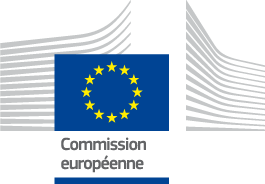Reducing pollution: Does it pay off?
Can public authorities benefit from restricting the use of a particular chemical? This question is at the heart of the ambitious Valesor European research programme, coordinated by the University of Angers.

Photo de Chris BoutillierThe reason why certain chemicals, even polluting ones, are still used is that they offer certain advantages. For example, they enable industries to perform well, and they contribute to the prosperity of the national economy. "For public authorities, reducing the use of chemicals, even polluting ones, has a cost," says Gildas Appéré, a specialist in environmental economics. "Faced with these costs, it is necessary to highlight all the benefits associated with reducing polluting emissions".
This is the aim of the Valesor (Valuation of environmental stressors) programme. Valesor is the winner of the Horizon Europe call for environment and health projects, and its aim is to assess the health and economic consequences of different chemical stressors, whether transmitted by air, water or soil, and to develop a decision-making tool for public decision-makers in the chemicals sector. "Using this tool, which will be deployed online, public authorities will be able to assess the impact of any given chemical reduction hypothesis and look at their effects in terms of benefits for public health and therefore for the economy," explains Gildas Appéré, head of the programme. "There are already tools targeting air pollution, but our aim here is to consider all the transmission channels of chemical pollution, on a European scale, by integrating the geographical and technological specificities of the different countries. After all, the problems are not the same in Norway as in some Central European countries, which are more prone to pollution". To develop this tool, the consortium will draw on existing data and generate new ones based on field studies.
Twelve partners
The project, officially launched on 1 January 2023 for a 3-year period, brings together twelve European partners, "with a strong Franco-Swedish focus", and a strong economic emphasis. "Often, in this type of project, economists come in at the end of the process", explains the professor, a member of the Groupe angevin de recherche en économie et management (Granem). "In our case, the originality lies in the fact that the project leaders are economists. We make up more than half of the thirty or so members of the project, and the team is completed by doctors, epidemiologists, toxicologists and environmentalists".
"This is the first time that the University of Angers has coordinated such a large-scale, multi-partner European project," explains Jean-François Pacaud, from the Cap Europe service that helps set up and monitor European projects.
The total budget for Valesor exceeds €3 million. To help with organisation and management, the programme has recruited Marie Chastanet as project manager, with the support of Jean-François Pacaud.
Background information
The Valesor project is part of a research cluster organised by the European Commission, which brings together four other European projects on assessing the effects of pollution on health. In 2024 and 2025, the Valesor team will hold the rotating presidency of this cluster.

